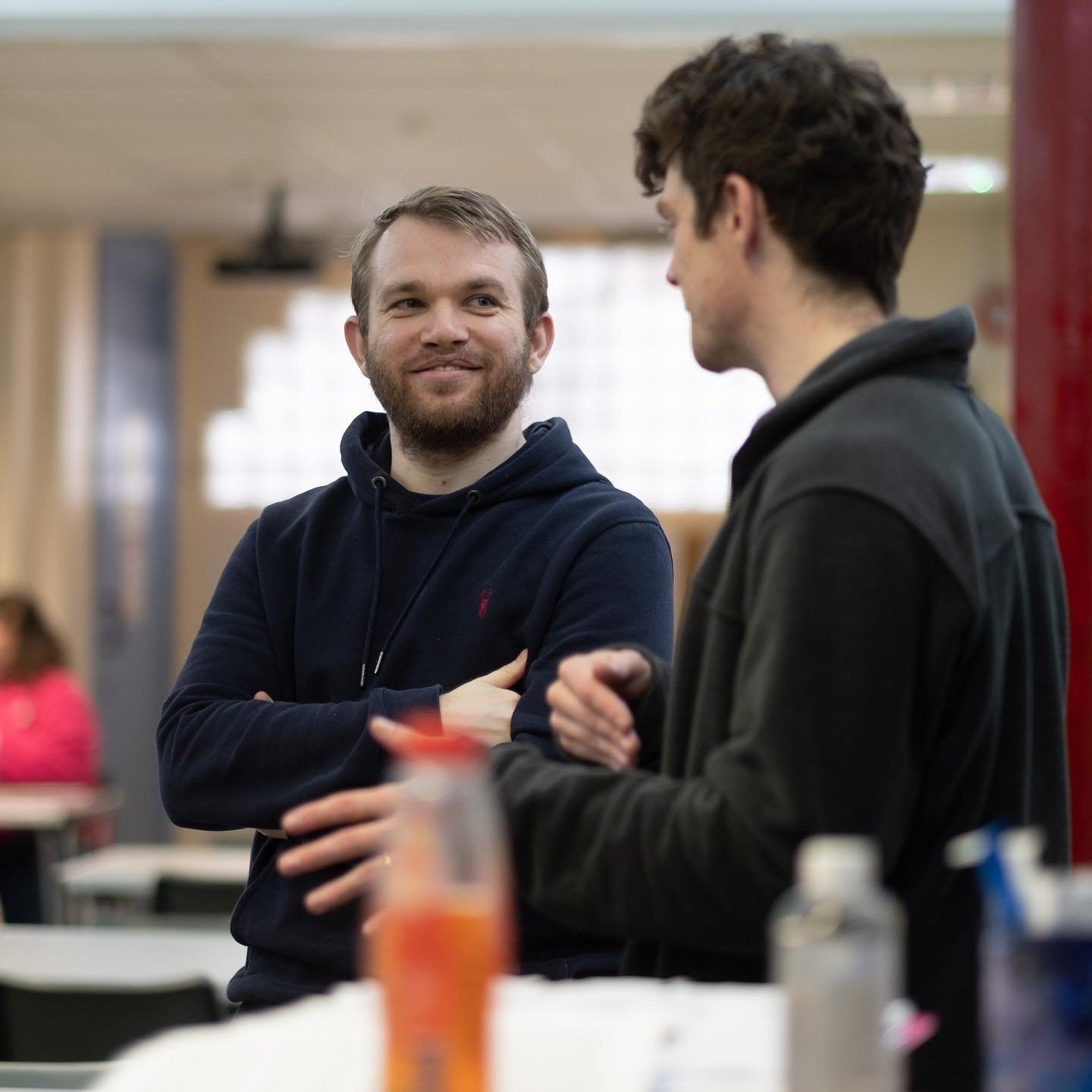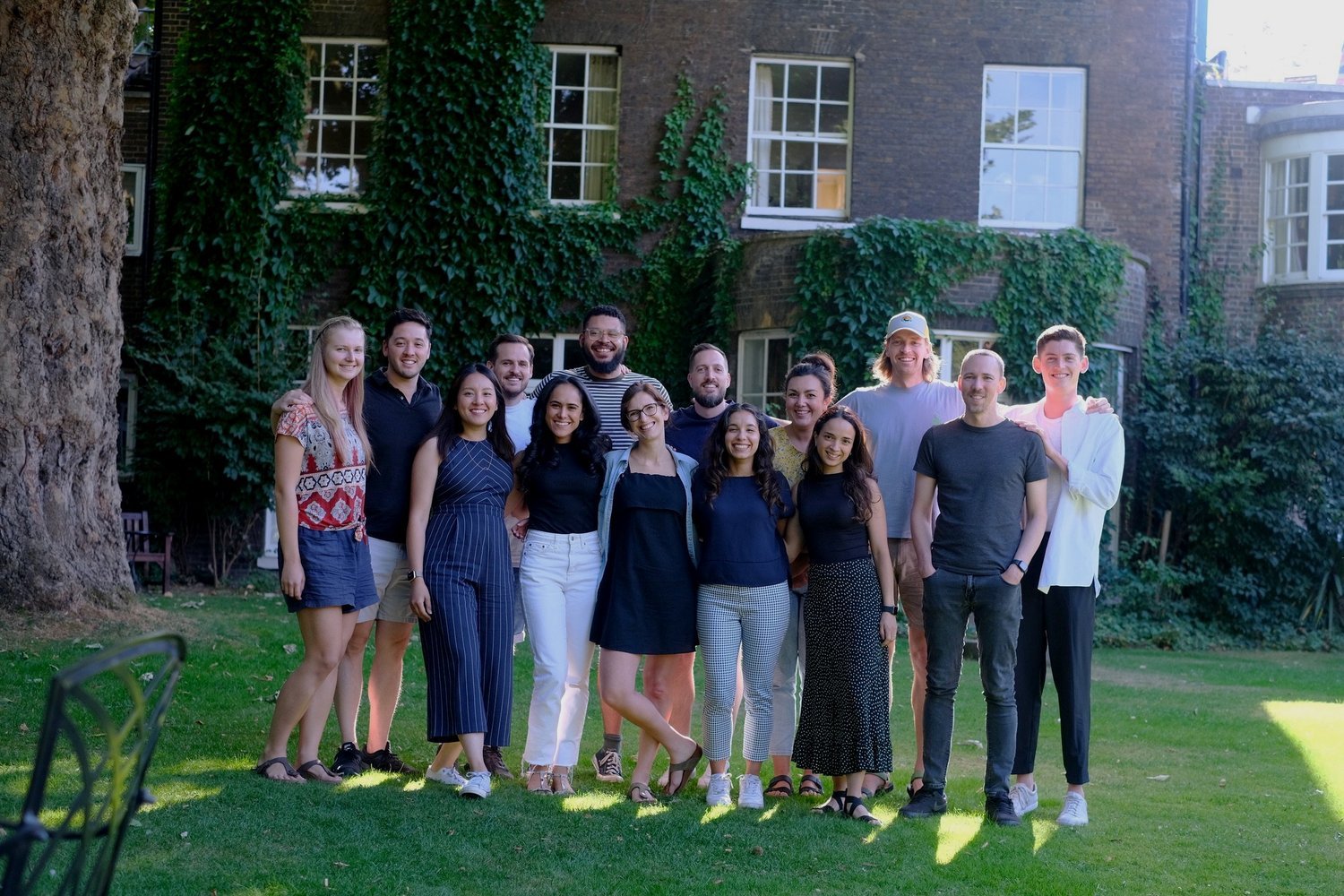Kafui is committed to making a difference in the lives of young people. Alongside being part of our church family, he's CEO of FAST, a charity dedicated to supporting youth in Battersea. In this conversation, Kafui shares his journey, the mission behind FAST, and how we can support their work. Read on to learn more.
Tell us about yourself.
I am of Ghanaian descent but was born and grew up in North-East London. I joined Grace London in March 2020 after moving to Battersea for work and was blessed to marry Etornam the following September. In June 2023, we welcomed to the world our bundle of joy and very opinionated daughter, Xorlase.
Etornam, Kafui & Xorlase
Please tell us more about FAST.
FAST London is a youth charity based on the Patmore estate that works to support young people aged 10-19. The estate is statistically deprived, and young people have less access to opportunities and are at high risk of all forms of abuse.
We provide three levels of support: 1) open access sessions, including football and cooking, 2) small group interventions and mentoring and 3) ‘keywork’ where we work with parents, social workers and other professionals.
I have been the CEO since 2019 and am responsible for strategy, fundraising, partnerships and governance. I also play a leading role in our Christian youth project.
Afterschool cooking session
What’s the vision behind FAST?
The ultimate goal of FAST is to glorify God in how we approach our work and through the impact we make in our community. Our vision is to create, "a community where young people grow up with a healthy sense of trust, resilience and hope for the future." It consists of four key elements:
Community. We want young people to belong and know they are unconditionally loved regardless of their gifts and shortcomings.
Trusted relationships. We seek to model and facilitate healthy relationships between young people and ourselves (as authority figures), and between peers.
Resilience. We seek to equip young people to deal with life’s challenges.
Hope for the future. We explore what the Christian faith says about life’s big questions. We also encourage young people to work hard and aspire to a better future in their careers and personal relationships.
We want to model Jesus by practically providing for young people whilst also telling them the spiritual truth of the gospel. Another key desire of ours is to provide opportunities for people who are passionate about sharing the gospel an opportunity to serve whether full-time or volunteering.
FAST football training
How can we pray for you and FAST?
Personally, please pray that I grow more in love with God and find complete satisfaction in him. As an extension of this, please also pray for protection over my family.
Secondly, we are blessed to have great relationships with young people and their parents. Please pray for wisdom and boldness to share the gospel, particularly through our Exploring Christianity sessions where there has been real spiritual hunger.
Finally, please pray for partners and finances to further our mission. We have an urgent need to try to raise an extra £150k in the next 18 months and are seeking God’s provision. Please consider becoming a foundational partner and giving monthly to us.
Praise God for what he’s doing through Kafui and FAST. If you’d like to support FAST financially or through volunteering, please contact them (info@fastlondon.co.uk). They’re looking for volunteers to help deliver their weekly sessions (4-8.30pm) and those with expertise in photography, social media, and fundraising.










